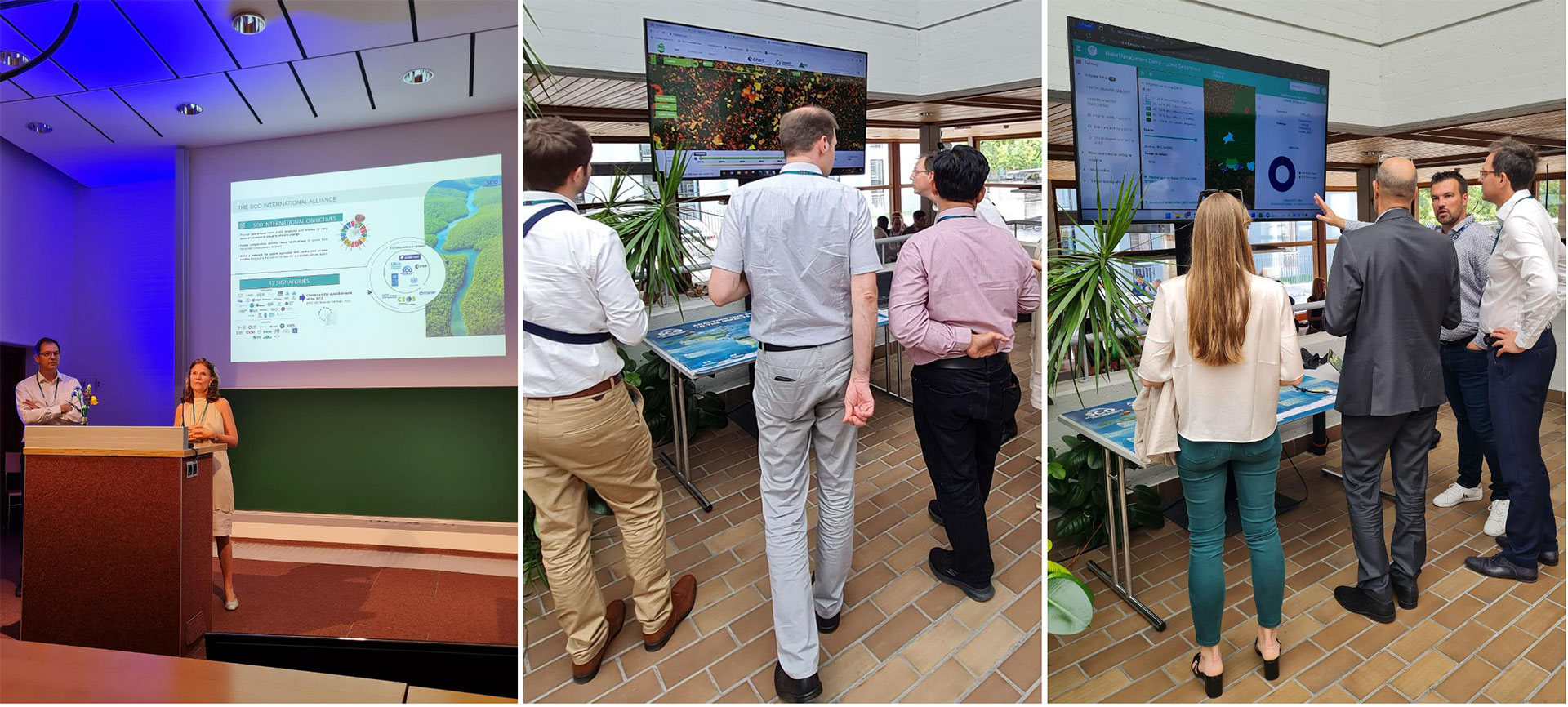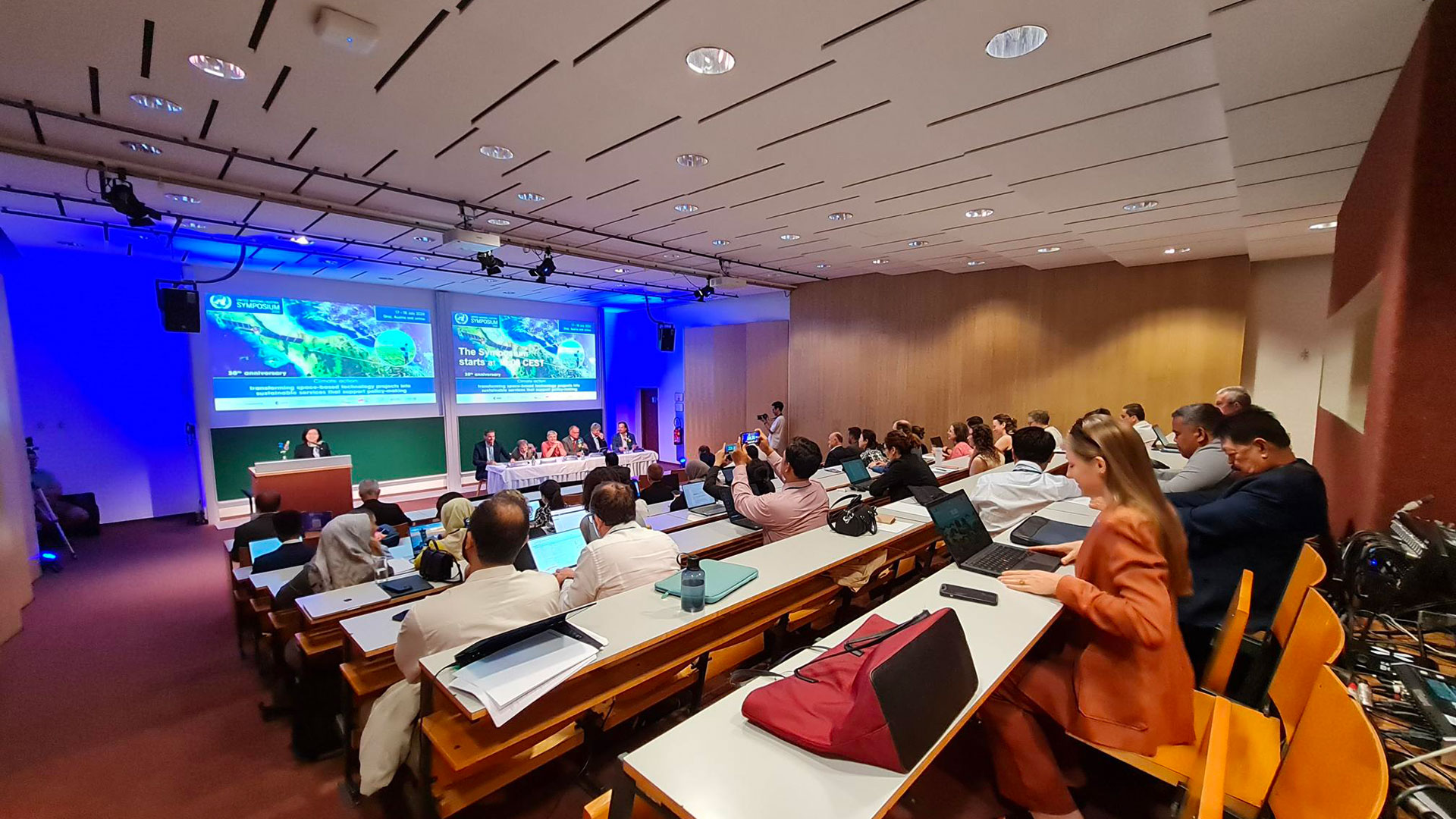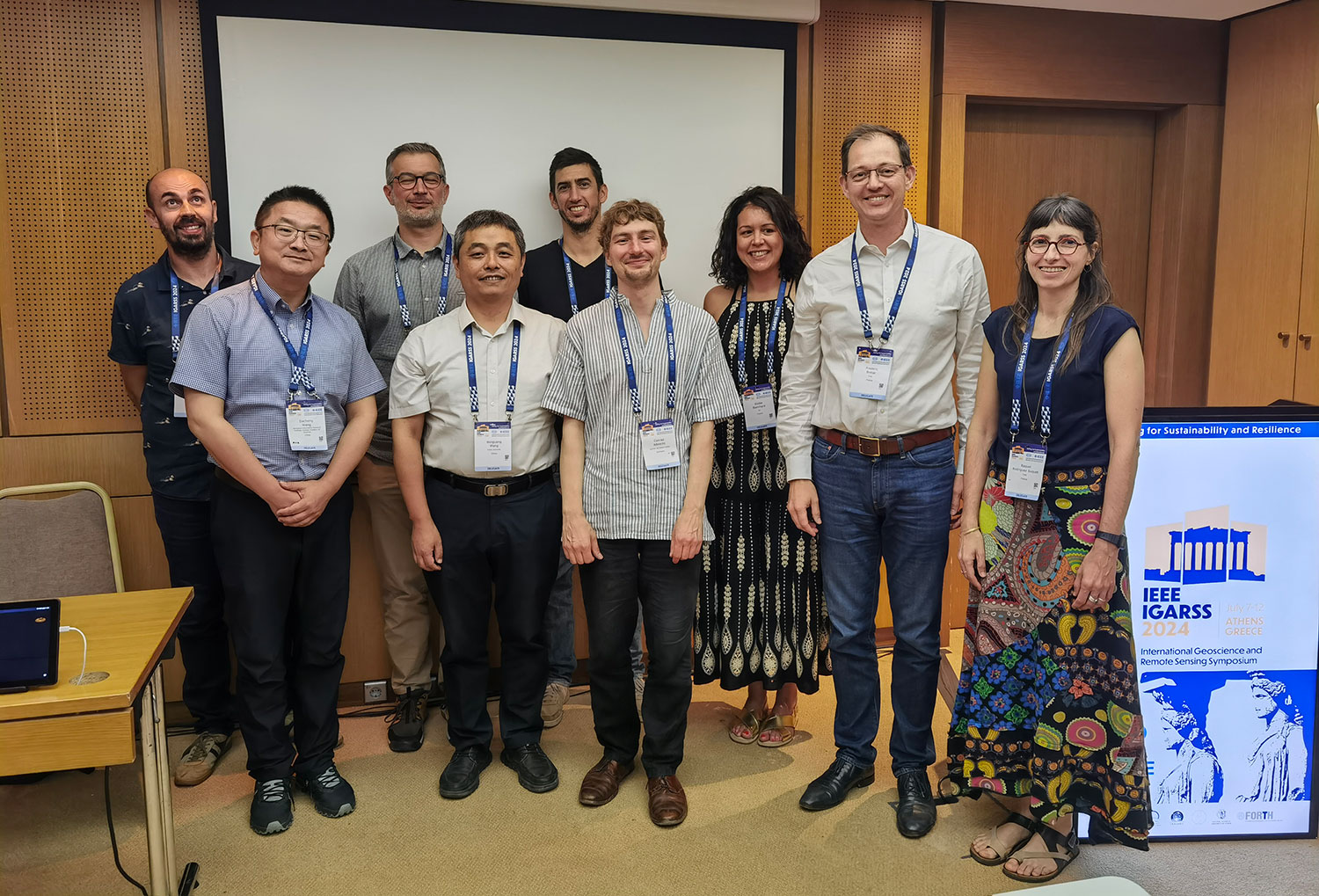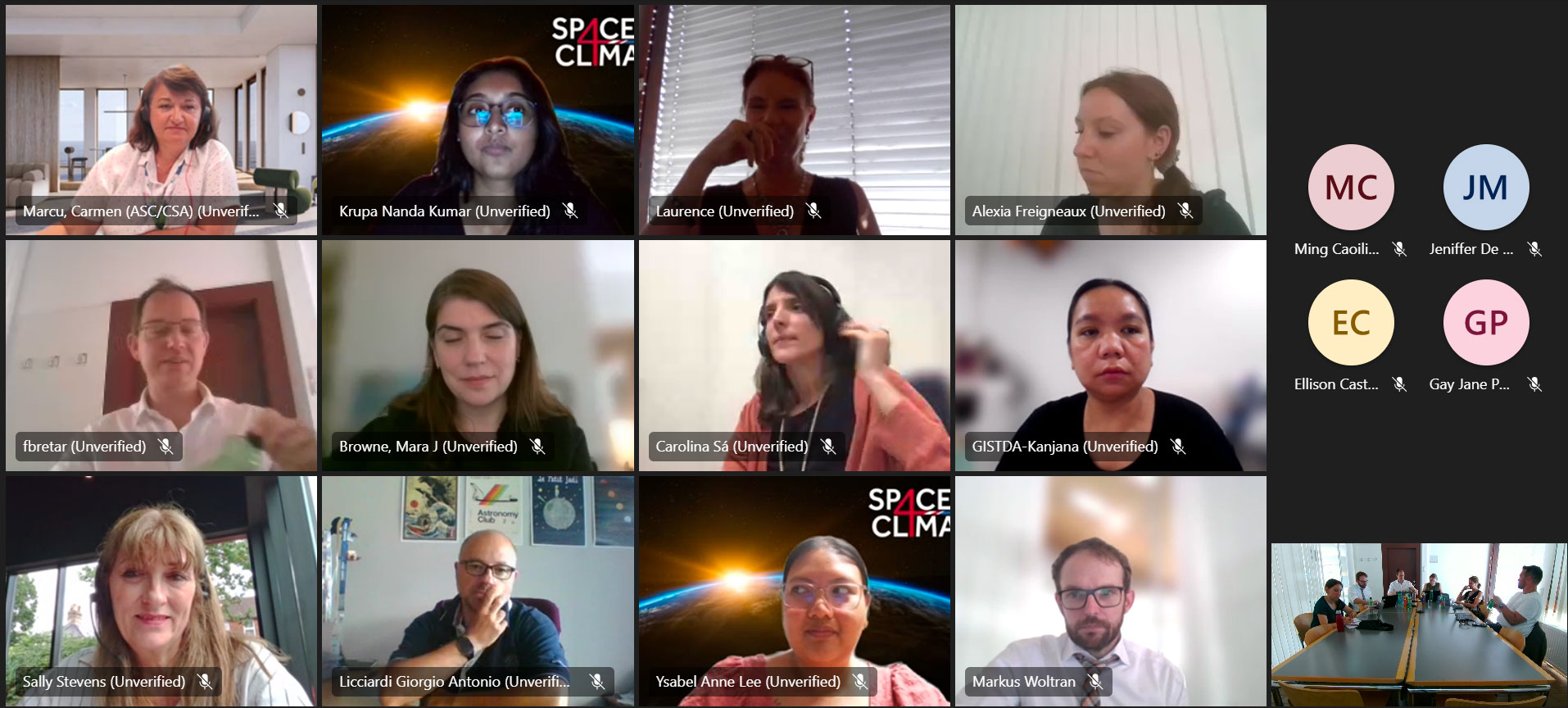IGARSS and UN/Austria Symposium, two major events
In the wake of these events, Frédéric Bretar, head of the SCO France programme at CNES, congratulated "the high-profile presence of the SCO, which anchors and validates the strong technological content of its applications, as well as its collaborations. Some of the sessions attracted a very attentive audience, interested in the operational aspects that are sometimes far removed from the day-to-day work of researchers. Yet it is through this continuous movement between science and societal development that the SCO builds its identity and achieves international recognition".
IGARSS 2024
An exceptional forum for scientists, the International Symposium on Geosciences and Remote Sensing (IGARSS) was held this year in Athens (Greece) from 7 to 12 July 2024. Perfectly aligned with the theme 'Acting for Sustainability and Resilience', the SCO stood out with applications such as Chove-Chuva, OpHyse, Mangrove and a session dedicated to Digital Twins (DT), with the FloodDam-DT and SCOastDT projects conducted in Franco-American cooperation.
Details of the SCO session at IGARSS here.
UN/Austria Symposium 2024
Every year, UNOOSA organizes this symposium in Graz (Austria), dedicated to promoting the potential of space applications and technologies to help mitigate and adapt to the effects of climate change. Held on 17 and 18 July 2024, its shared online sessions bring together thousands of stakeholders from all over the world, including the SCO.
For its second participation in the Symposium, the SCO has put forward a number of testimonials:
-
Scaling up water management: Pascal Kosuth, from the French Ministry of the Environment, presented the satellite monitoring service for water reservoirs at national level, based in particular on the Stock Water project, which has become operational thanks to the SCO framework;
-
Cyclone Flood Alert System user testimonial: Sazzad Hossain, from the Bangladesh Water Development Board, described the methods used to integrate the new Band-SOS system tools into day-to-day cyclone monitoring activities in the Bengal Delta (use case of cyclone Remal here);
-
Data interoperability to combat tropical deforestation: following a presentation of the TropiSCO tool for real-time monitoring of tropical forests, Thierry Koleck, radar remote sensing specialist at CNES, shows how the data is now fully integrated into the national observation system for natural resources and forests in Gabon;
-
The leverage effect: Founder and CEO of MEOSS, Thomas Ferrero spoke of the SCO's contribution to the development of his company's business, which is now recognized as a major player in satellite-based water management with its Water Management service.

▲ From left to right: presentation of the SCO initiative by Frédéric Bretar and Laurence Monnoyer-Smith (CNES), free use of the TropiSCO platform, demonstration of the Water Management service by Thomas Ferrero (MEOSS). © SCO
A clear desire to share these advances
At the SCO, the driving forces are as much to be found in the ranks of the signatory members, who mobilize the international community, as in the project teams that develop local, transferable applications.





